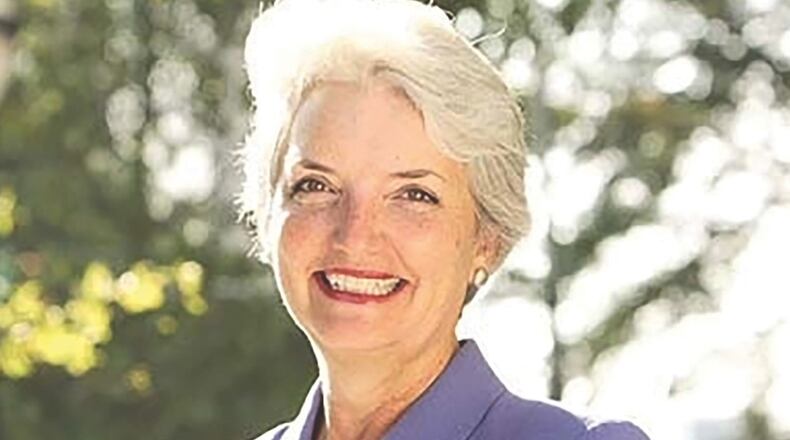She was a tireless advocate for poor and marginalized people, believing they deserved legal representation to keep them from being evicted or losing their food stamps or to help them get access to adequate medical care.
And yet, the thousands of Georgians who benefited from Georgia Legal Services Program likely never heard of attorney Phyllis Holmen, who ran the organization for 27 years. It provides free legal help on civil cases to low-income residents in 154 of the state’s 159 counties.
“She was a social justice warrior,” said author Melissa Faye Greene. In 1975, Greene worked as a paralegal for Georgia Legal Services in Savannah, where she met Holmen, a staff attorney. The two remained friends. “She was extremely intelligent, she was beautiful and kind, but she could also be fierce. I can’t imagine a better person to have on your side than Phyllis if you were marginalized and needed help.”
Holmen appears in Greene’s 1991 award-winning nonfiction book, “Praying for Sheetrock.” The account tells the story of a poor Black man who led his community in challenging the local king-making sheriff who worked both sides of the law in Georgia’s coastal McIntosh County during the early 1970s.
“She was not afraid to kick the top off an ant hill in the search for social justice,” said William H. “Bert” Gregory, a Vienna, Georgia, attorney and board member of Georgia Legal Services.
Phyllis Holmen died Thursday in her Atlanta home of complications from a long illness. She was 75. A native of Chicago’s Norwood Park, she was the oldest of Arne and Doris Holmen’s three children. Her grandparents were Danish immigrants, and the family was proud of their heritage. They went regularly from their northside home to the Dania Club, a Danish club in southside’s Humboldt Park, where their grandfather tended bar and grandmother cooked.
“No one in our family was a lawyer,” said her brother Ralph Holmen. “Our dad was a house painter and decorator, our mom was a homemaker. Most Danish people were tradesmen.”
Phyllis learned to make the intricate Danish baked goods her grandmother and mother produced, and she continued to do as an adult for family and friends. When she married attorney Jonathan Hewett, she insisted on the reception having a kransekage, a traditional Danish wedding cake that looks like a ziggurat, says her brother Ralph Holmen.
After graduating from the University of Illinois Law School, Phyllis took a job in 1974 in the Georgia Legal Services office in Savannah, “which was a very hostile place for legal aid lawyers and civil rights attorneys,” says attorney Robert Remar, who worked there. It was the only integrated law office in town.
Melissa Faye Greene recalled how Phyllis would invite the staff to her Savannah apartment on Friday nights to play board games. Instead of Monopoly or Risk, “she had found these boring, noncompetitive games,” Greene said. “She didn’t want us to be at each other’s throats. We’d end up helping each other up a mountain or something like that.”
An attorney sued the Savannah office and its manager Steve Gottlieb, trying to shut it down. Some officials went into a tailspin, Gottlieb says, but “Phyllis didn’t panic, she started looking at the lawsuit, and played it by the book. She had it removed to federal court. Sonny Seiler represented us, and the judge dismissed the case.”
As a child growing up in Chicago, Ralph Holmen knew there was something special about his older sister. She was cerebral, compassionate and concerned about other people. When she decided to become an attorney, Ralph said, “She told me ‘Doing that, I think I can help a lot of people.’ I believe she spent her whole life thinking of others.”
Phyllis Holmen served 43 years with Georgia Legal Services Program. Hal Daniel, who was on the organization’s board for several years, also worked with her on the Board of Governors for the State Bar of Georgia. He described her as someone with “great intellectual abilities and administrative ones.” When another member of the Board of Governors complained that Holmen talked “too much” about Georgia Legal Services,” Daniel laughed, and told the man “Well, that’s her job.”
As the executive director of Georgia Legal Services, Phyllis set high standards, but then helped staff attorneys meet those standards, former colleagues said. She searched for, and often found, diverse sources of funding for the program for the nonprofit.
“She really believed in the legal system,” said Linda Lowe, a health policy analyst who worked with Holmen for more than 30 years. “She was devoted to helping people with low incomes. She thought if we just kept at it, just bent ourselves to the task, we would improve things.”
In addition to her husband and brother, Phyllis Holmen is survived by stepsons Bret and David Hewett, three nieces, her brother Neil Holmen, two step nephews and one step niece, granddaughter Lena Hewett and grandson Taylor Hewett.
About the Author
Keep Reading
The Latest
Featured



